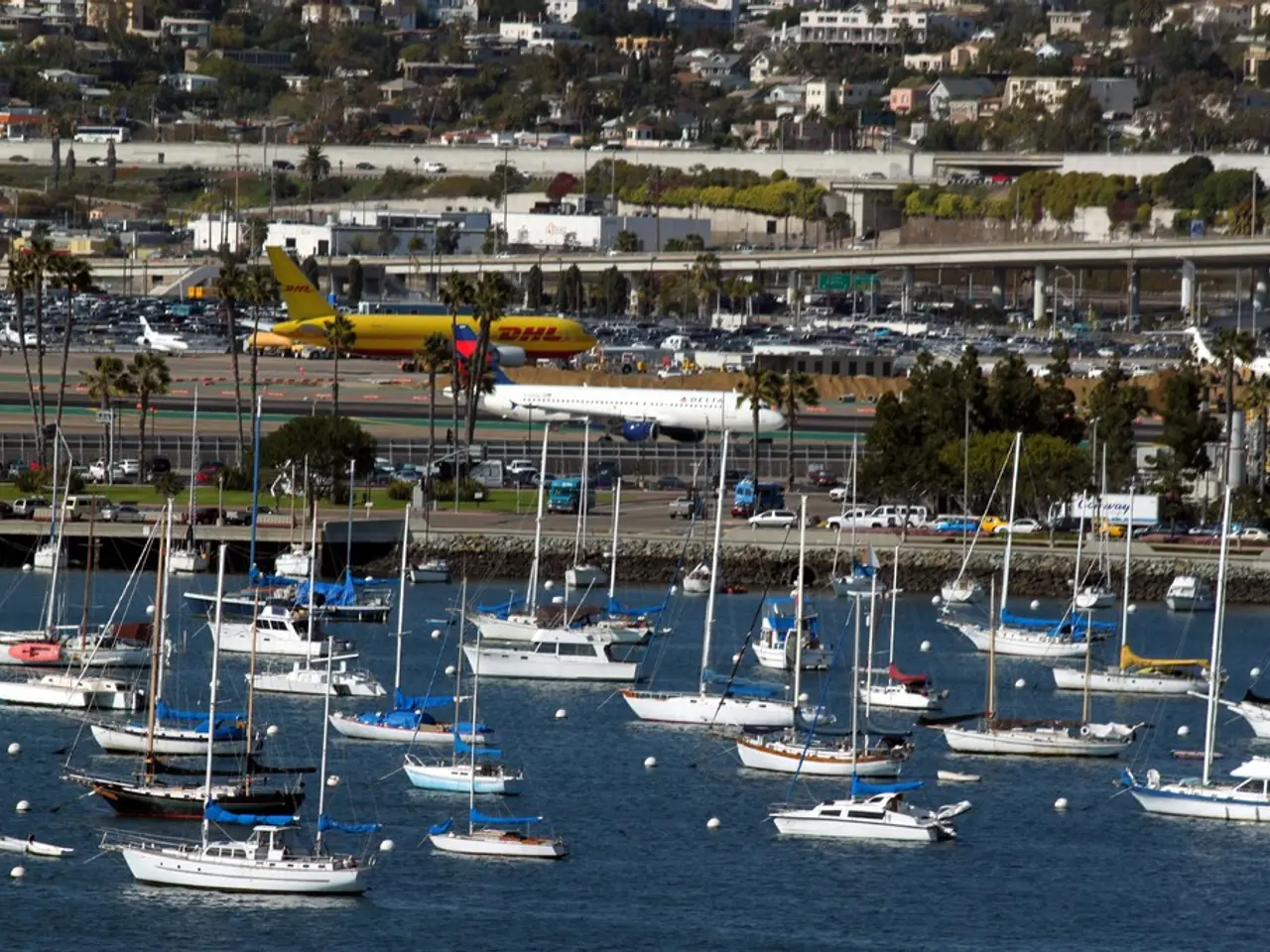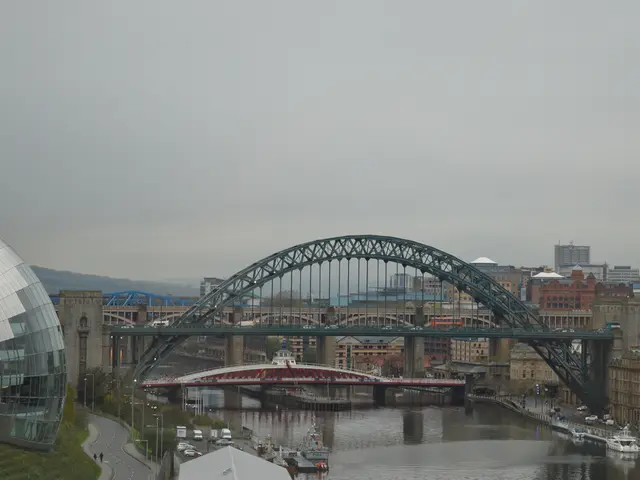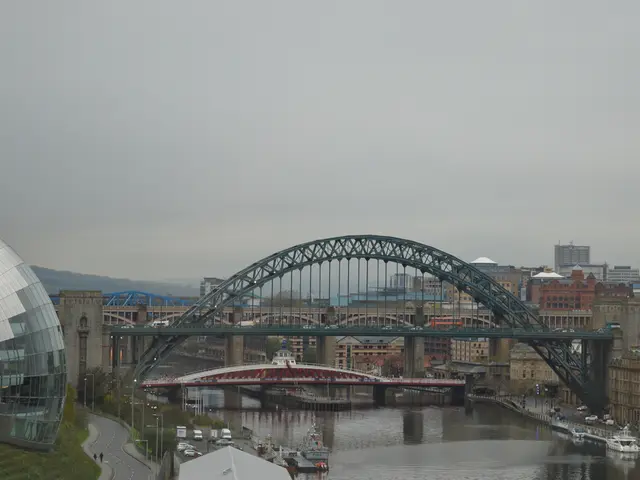Renault becomes part of UECC's Sail for Change venture, focusing on shifting fuel types
UECC Achieves Significant CO Emissions Reduction and Pioneers Sustainable Maritime Transport
UECC, a leading provider of ocean-going ro-ro vessels, has made impressive strides in reducing its carbon emissions. By 2024, the company has cut its CO emissions by over 107,000 tonnes and aims to increase this reduction by 50% to nearly 155,000 tonnes in 2025.
The company's fleet of dual and multi-fuel LNG pure car and truck carriers (PCTCs) is being fuelled with biomethane or bioLNG. UECC expects alternative fuels to account for 58% of its fuel use by 2030. This shift towards sustainable fuels is part of UECC's strategy for compliance with European regulations on maritime decarbonisation.
UECC launched its Sail for Change initiative last June, with the goal of decarbonizing its vessels. The bioLNG used in this initiative is supplied by Titan Clean Fuels. One of the first customers to collaborate with Sail for Change was the Renault Group, which began pilot shipments of Renault vehicles between the Belgian port of Zeebrugge and the port of Esbjerg in Denmark in July 2022.
The service between these two ports is expected to result in an annual saving of 1,000 tonnes of Scope 3 CO emissions for Renault. Scope 3 emissions are those produced indirectly by a company in the supply chain and not by its own activities.
UECC's commitment to sustainability extends beyond its own operations. The company is supplying customers with alternative fuels as part of its strategy to help them comply with European regulations. UECC's north-south Europe trading network now includes an additional port call in Turkey at Yarímca port.
The FuelEU Maritime regulation, fully applied since January 2023, sets maximum limits for the yearly average greenhouse gas emissions from ships above 5,000GT calling at European ports. UECC's eco-friendly fleet is generating a compliance surplus under FuelEU Maritime that can be monetized through the pooling mechanism of the regulation. This surplus allows UECC to avoid surcharges for its customers, insulating them from regulatory penalties under the new green regime.
UECC's energy and sustainability manager, Daniel Gent, stated that Sail for Change offers customers seeking decarbonization a direct, meaningful, and certified impact on their supply chain emissions through marine transport powered by sustainable fuels. The company's goal is to achieve a 45% reduction in carbon intensity by 2030 towards its goal of net zero by 2040.
The FuelEU Maritime regulation is considered the biggest lever for decarbonisation in the maritime sector for a generation, according to UECC. The regulation encourages companies to invest in vessels running on alternative fuels, and UECC is at the forefront of this movement. The company added another dual-fuel LNG PCTC to its north-south Europe trading network in June 2022 - Blue Heritage.
Renault Group, UECC's partner in sustainability, aims to reduce emissions from its supply chain and logistics by at least 27% by 2030 and become a net zero company in Europe by 2040 and worldwide by 2050. With partners like UECC, Renault is well on its way to achieving these ambitious goals.
Read also:
- Deepwater Horizon Oil Spill: BP Faces Record-Breaking Settlement - Dubbed 'Largest Environmental Fine Ever Imposed'
- Cars' Environmental Impact Explained
- Proposal demanded for legislation aimed at shielding laborers from electronic equipment-related hazards, as per commission's responsibility.
- Early Morning News Dispatch: Should Diesel Vehicles Be Outlawed?








